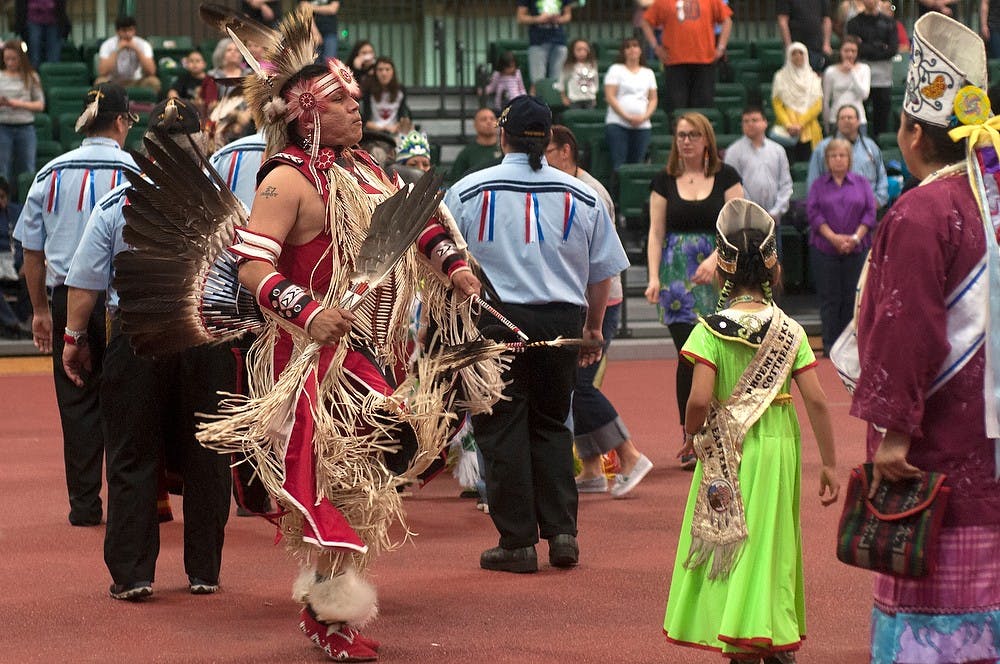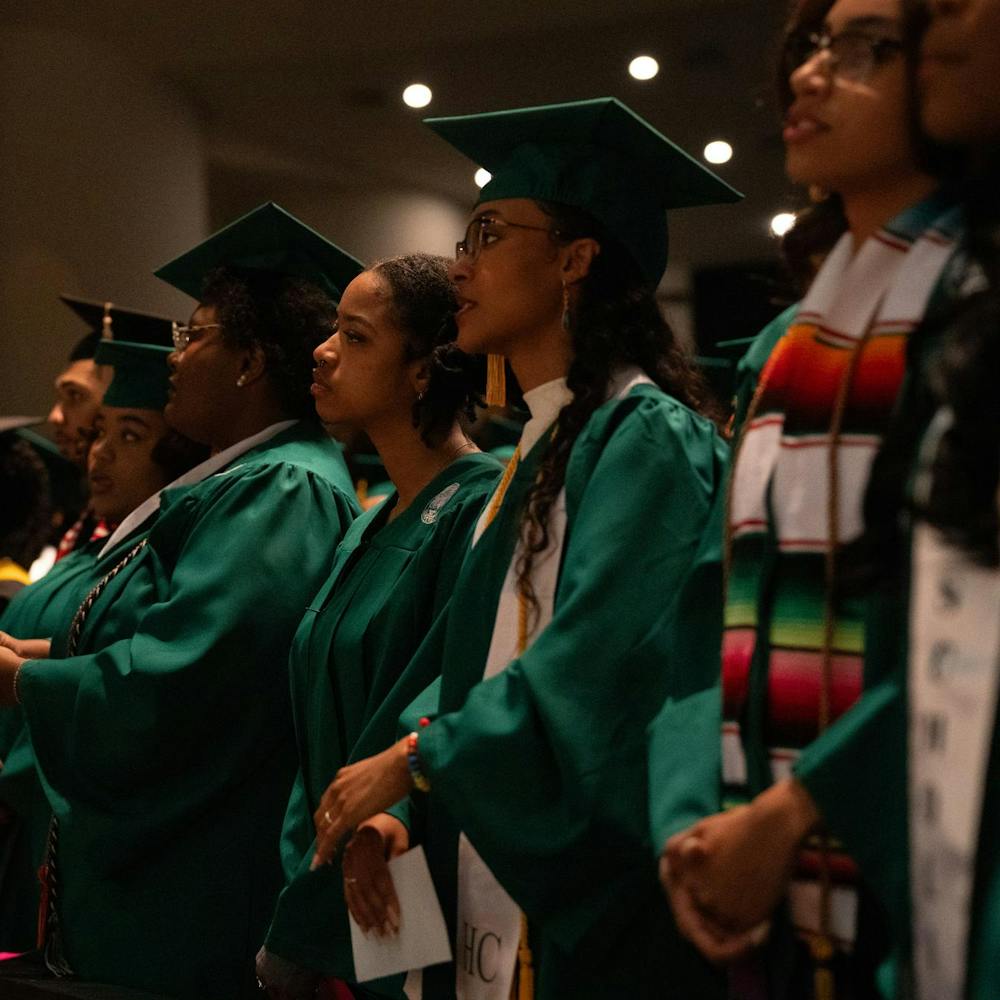The controversy surrounding Columbus Day has fueled discussion at MSU for a good part of its history, with groups protesting the day’s observance and questioning the historical figure’s worth to the United States.
Each year, protests by Native American groups fuel new legislation to replace Columbus Day with Indigenous Peoples’ Day and, on Sept. 27, a change was made.
Changing calendars
A sign that reads, “Closed for observation of Indigenous Peoples’ Day” hangs on District Court 54B’s door for the first time in the city of East Lansing’s history.
For second-year law student Emmy Scott, the day sets the record straight on what Christopher Columbus represents to native people and the United States.

Scott compared today to her grandfather’s service in World War II. Scott described the U.S. as a united front against a tyrant who was committing genocide, and that the modern day celebration of Columbus contradicts the United States’ role in combating the mistreatment of other humans, she said.
“Columbus signifies the genocide of native peoples,” Scott said.
Scott testified in favor of the resolution on Sept. 27.
“It is a celebration of life, but also renewed energy,” Scott said. “Indigenous Peoples’ Day is a way to say, ‘we’re still here, we’re still thriving.’”
A picture has been painted of indigenous peoples, and Scott said it’s outdated and inaccurate.
“There’s a lot of misconceptions about Native Americans,” Cassandra Shavrnoch, NAISO co-chair and world politics senior, said.
People, specifically those in the MSU community, have little to no knowledge of indigenous people, she said.

Scott said East Lansing’s cooperation has been well done throughout the whole process.
“We’re not going anywhere,” Scott said.
A city’s change
A little more than a year ago, East Lansing’s Human Relations Commission started to debate the idea of Indigenous Peoples’ Day — an idea brought up by native people years before.
On Sept. 27, a resolution was put before East Lansing City Council to recognize the second Monday in October as Indigenous Peoples’ Day.
The resolution passed unanimously.
As for the drafting of the resolution, Julia Christensen, international relations senior and commissioner, said the process took time and careful construction.

“One of the commissioners brought up the fact that several other cities in the country and the state have passed resolutions formally either recognizing Indigenous Peoples’ Day along with Columbus Day on the second Monday in October, or very few have completely replaced (Columbus Day),” Christensen said.
Christensen testified on behalf of the resolution at the Sept. 27 council meeting. She said the impact Columbus had on indigenous populations was negative and the commission discussed his influence.
“We had a conversation of whether or not this was something we wanted to pursue,” Christensen said. “The general feeling on the commission was that Columbus perhaps isn’t exactly someone who we should be celebrating as much as we do.”
Lansing City Council will look at a move to observe Indigenous Peoples’ Day at their meeting on Oct. 10.
“Right now, it’s about having a platform for these people to discuss these issues because it’s getting a lot of attention,” Christensen said. “It’s gotten a lot of local attention.”
With drafting in mind, the commission used other cities’ resolutions for the change as a template for East Lansing, in addition to reaching out to local indigenous leaders, she said.
“We took it (the resolution) to some of the local indigenous leaders,” Christensen said. “We wanted to run it by the people who would know if the language we were using was appropriate.”
She said while drafting the resolution, the commission wanted to make sure that native groups and people were represented correctly, so they reached out to native students and leaders about the resolution.
“We wanted to make sure we had the community’s approval so we weren’t talking over anyone,” she said.
A new celebration
For native students and groups on campus, their first Indigenous Peoples’ Day will pay tribute to their ancestors and start a conversation.
The North American Indigenous Student Organization, or NAISO, will hold a celebration on Oct. 10 for the first time in the group’s history in lieu of their yearly protest denouncing Columbus and his treatment of native peoples.
“We’ve had our protest for at least the past eight years,” Shavrnoch said.
NAISO’s first Indigenous Peoples’ Day will break the streak of the yearly protests, Shavrnoch said.
“We just thought this year instead of protesting, how we’ve done it in the past, now it’s more of a time for a celebration,” she added.
American Indian and Alaskan Native students only make up 0.3 percent of MSU’s full population, a number that under-represents natives immensely and creates misconceptions, Shavrnoch said.
“We want to show the community what Indigenous Peoples’ Day means to the modern Native American,” Shavrnoch said.
She added Columbus and the native communities sharing the same day doesn’t make sense.
Columbus’ role in the U.S. has been blown out of proportion, but many believe that as a historical figure, he should remain in history curriculum, Christensen said.
“While we recognize that change in the name of a holiday doesn’t fix anything, visibility is very important,” Christensen said.
Out of everything else, Shavrnoch said what indigenous people want most with the change is recognition and remembrance.
“We are completely normal people, and we just want to recognize what happened in the past — you can’t change it, but you can maybe help alleviate that pain by recognizing (it),” Shavrnoch said.







